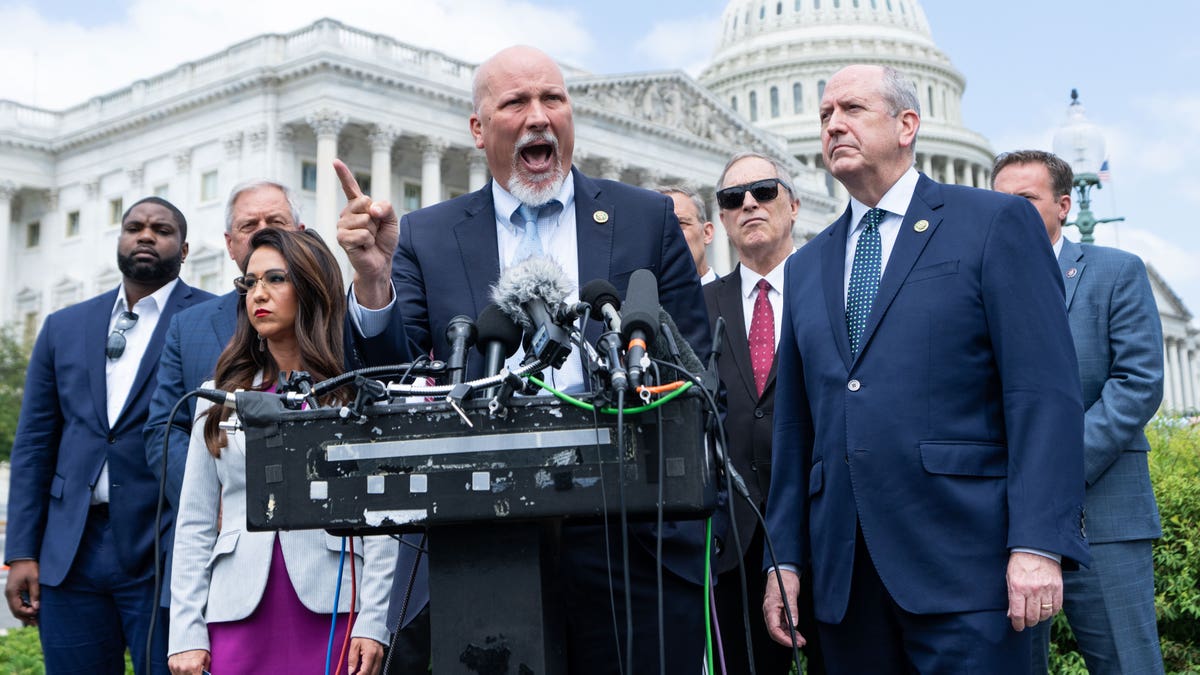The House Freedom Caucus has unveiled its own budget proposal aimed at enacting President Trump's agenda through the budget reconciliation process. This move underscores the ongoing struggle within the House GOP to find common ground on a budget plan, despite aiming to pass a bill by the end of the month.
The caucus's proposal links a debt ceiling increase and heightened border security funding with substantial spending cuts, achieved through welfare work requirements and the reversal of several Biden administration initiatives. This strategy highlights the Republicans' attempt to leverage their congressional majorities to implement significant conservative policy changes through reconciliation, a process that allows them to bypass Democratic opposition on budgetary matters with a simple majority vote in the Senate.

The proposal outlines $200 billion in annual spending increases for border security and national defense, offset by $486 billion in spending cuts over ten years. It also includes a $4 trillion debt ceiling increase, aligning with Trump's demands. The spending cuts would target areas such as electric vehicle mandates and implement work requirements for certain federal benefits.
Notably absent from the proposal is the extension of the 2017 Tax Cuts and Jobs Act, a key element of Trump's agenda. While House GOP leaders and Ways & Means Committee members advocated for its inclusion in a comprehensive reconciliation bill, the Freedom Caucus suggests addressing it in a separate bill later. This two-bill strategy is also preferred by Senate Republicans. However, concerns have been raised that delaying the tax cut extension could lead to its expiration before Congress can act.

This proposal comes after disagreements within the House Budget Committee regarding spending cuts, causing a delay in advancing a budget resolution. Senator Lindsey Graham, Chair of the Senate Budget Committee, has announced plans to advance his own proposal. Representative Andy Ogles criticized the lack of progress on a budget deal, emphasizing the urgency of the situation. Representative Michael Cloud echoed this sentiment, stressing the importance of acting on Trump's agenda.
Proponents of the two-bill approach argue it allows for quick wins on areas of broad Republican agreement while deferring more complex issues like tax cuts. This strategy aims to secure tangible achievements early on while navigating internal divisions and a tight legislative timeframe.
Comments(0)
Top Comments